The British public is being misinformed about the U.K. government’s role in shaping coverage of global events such as the war in Ukraine, John McEvoy and Mark Curtis report.
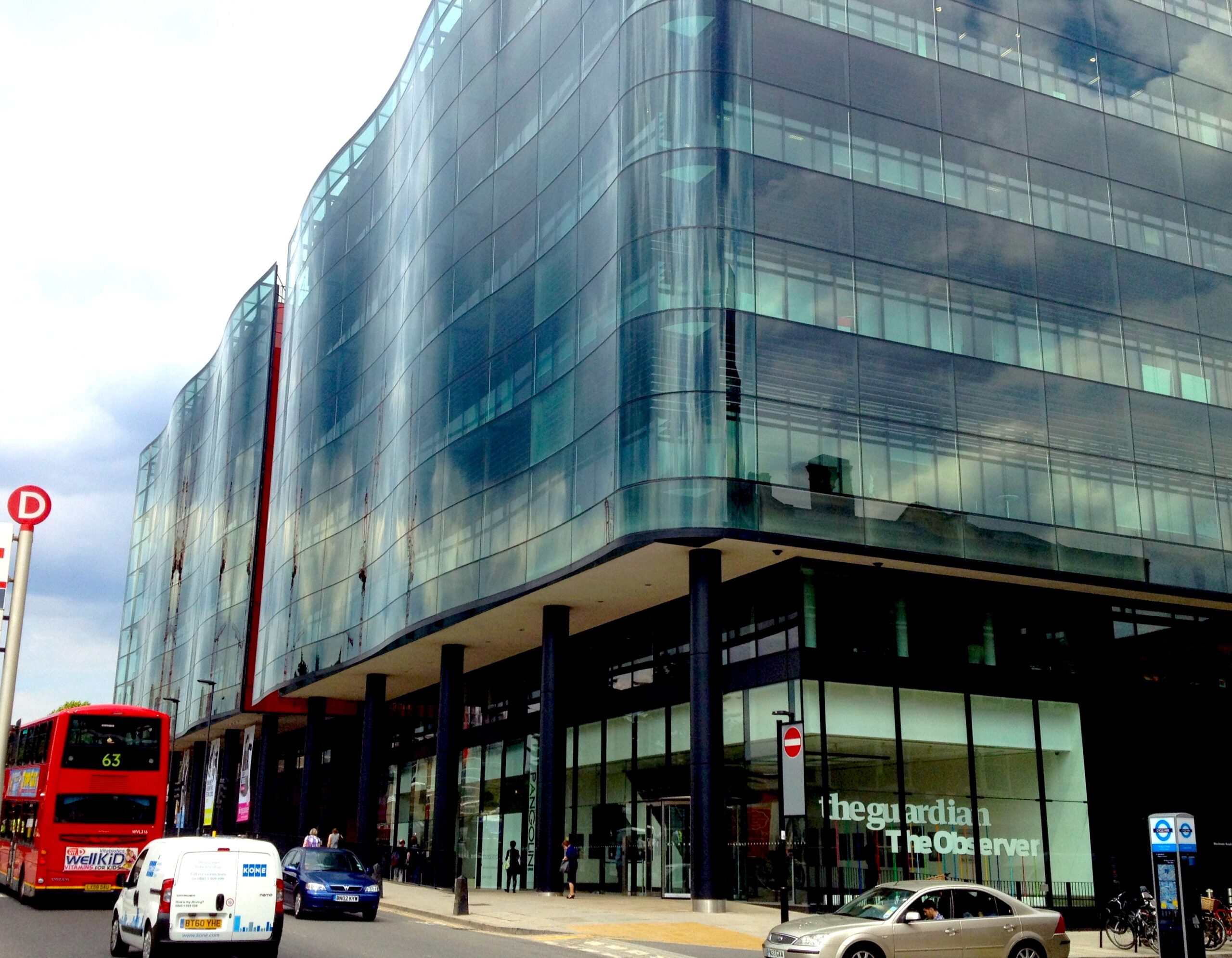
The Guardian building in London, 2012. (Bryantbob, CC BY-SA 3.0, Wikimedia Commons)
By John McEvoy and Mark Curtis
Declassified UK
- Declassified finds 25 Guardian and Observer articles referencing the Atlantic Council Digital Forensic Research Lab, none of which mention its funding by the U.K. and U.S. governments
- The Centre for Information Resilience has been referenced 29 times in the U.K. media, with only one article mentioning its U.K. government funding
- The U.K. government refuses to tell Parliament which “counter-disinformation” groups it supports and with how much money

 The U.K. government has poured over £25 million into private “counter-disinformation” organisations since January 2018 and four of these are directed by people linked to the British or U.S. foreign policy establishment.
The U.K. government has poured over £25 million into private “counter-disinformation” organisations since January 2018 and four of these are directed by people linked to the British or U.S. foreign policy establishment.
Yet, while publishing information deriving from these groups, much of it on the Ukraine war, media outlets are failing to inform their readers of these organisations’ ties to the U.K. government.
Instead, the information is presented as coming from “independent” or “non-government” sources, thereby obscuring the financial trail which leads to Whitehall.
The British public is being misinformed about the U.K. government’s role in shaping coverage of global events such as the war in Ukraine, as well as the conflicts of interest which emerge from the incestuous relationship between the state, NGOs, and the media.
At the same time, the U.K. government is refusing to disclose the full extent of its links to the “counter-disinformation” industry, such as which organisations receive funding and how much.
Atlantic Council
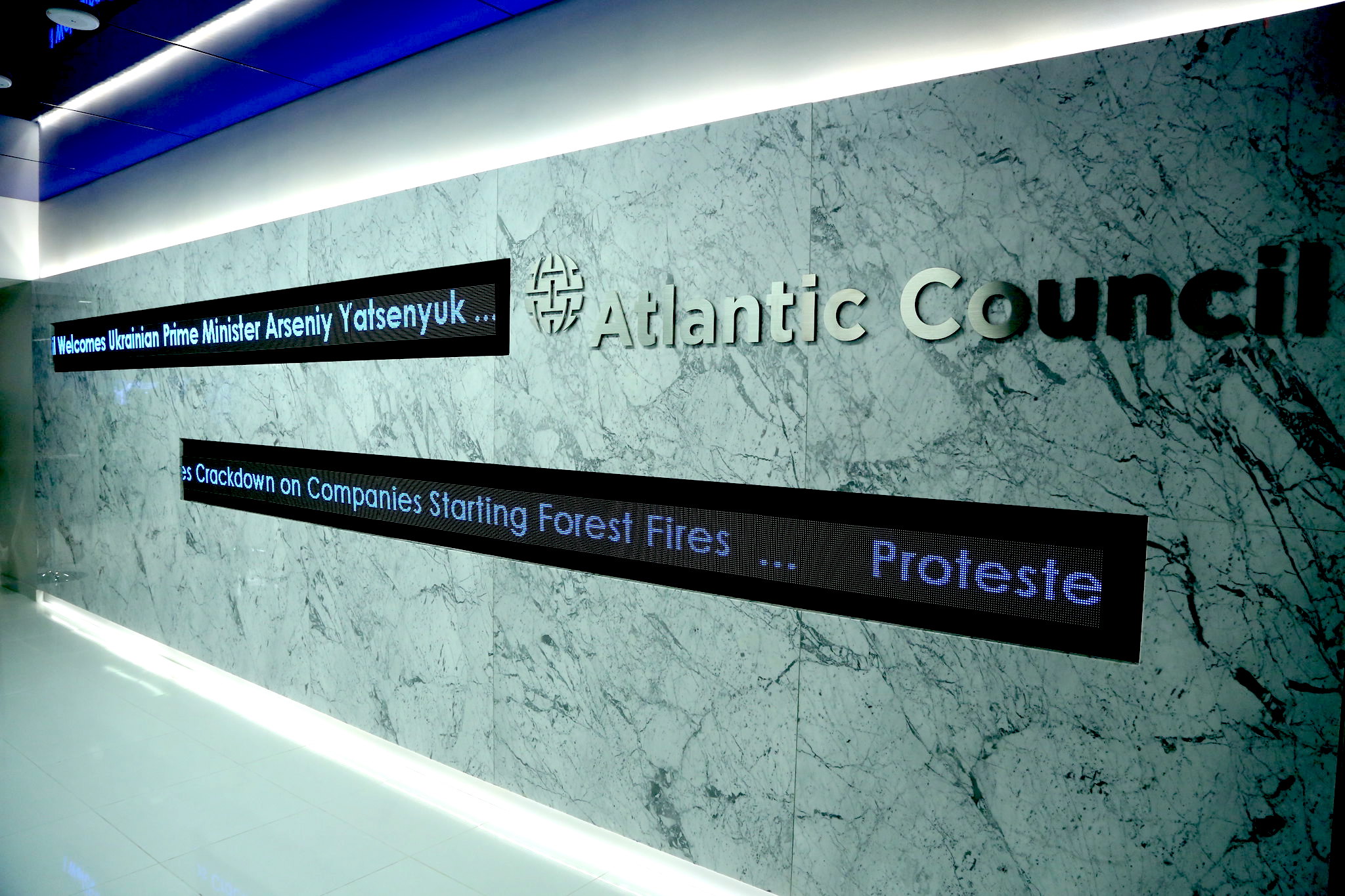
The Atlantic Council in Washington, D.C., March 2014. (Atlantic Council, Flickr, CC BY-NC-ND 2.0)
One counter-disinformation group receiving government funding is the Atlantic Council Digital Forensic Research Lab (DFRLab), to which the Foreign Office has given at least £6.7 million since January 2018. Other generous funders include the United Arab Emirates, Goldman Sachs, Facebook and the U.S. Departments of State and Defense.
The DFRLab says its mission is to “identify, expose, and explain disinformation where and when it occurs using open source research.” The organisation frequently publishes research about how the main adversaries of its funders — such as Russia, China and Iran — are engaged in malign information activities worldwide.
Declassified has found 25 Guardian and Observer articles which reference the DFRLab, its research or its employees. None of these articles mention the DFRLab’s financial ties to both the U.K. and U.S. governments.
Instead, the DFRLab is referred to as a “Washington. D.C.-based” organisation, “a U.S. think tank,” “a U.S. research group,” “a non-profit that monitors and combats disinformation online” or “an independent digital forensic research lab.”
Based on a review of U.K. broadsheets using the Lexis database, the Independent has referenced the DFRLab four times since January 2022, never mentioning its funding.
For its part, the Daily Mail has cited the DFRLab on four occasions, yet did not divulge the money it receives from the Foreign Office.
Conflicts of Interest
In November 2019, then Labour Party leader Jeremy Corbyn unearthed documents which showed that the country’s health service, the National Health Service, or NHS, was on the table in trade talks with the U.S. Shortly after, DFRLab associates began to suggest the leak resembled a Russian disinformation operation.
Sky News reported that “experts from think tank Atlantic Council… have suggested the way the documents were shared is similar to a Russian disinformation campaign.”
The Telegraph noted that “the Atlantic Council” helped “to uncover evidence showing that the way the documents came into the public domain mirrored a disinformation campaign” of Russian origin. It also cited Graham Brookie, director of the DFRLab, saying: “Whoever did this… was absolutely trying to keep it a secret. It carries the spectre of foreign influence.”
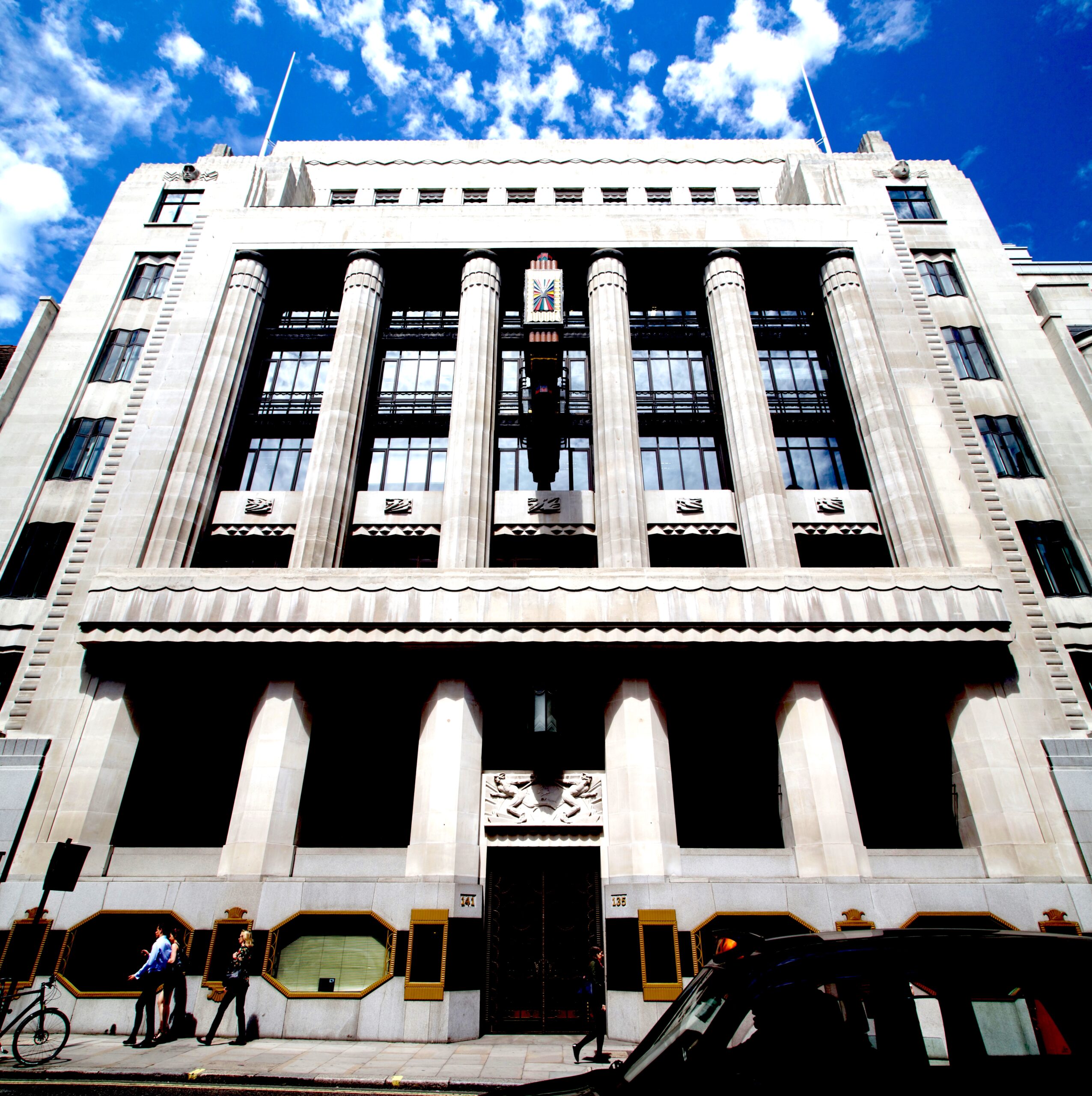
The Daily Telegraph building in London. (Tom Parnell, CC BY-SA 2.0, Wikimedia Commons)
For its part, the Financial Times noted that the NHS document was analysed by the “Washington-based Atlantic Council think-tank” which suggested that “the incident could point to potential foreign interference in the upcoming U.K. election.”
The Metro reported that “international affairs think tank The Atlantic Council found the documents were spread online in a similar way to” a Russian information operation. The Daily Express added that the “Atlantic Council think tank” worked “to uncover evidence showing that the documents that came into the public domain mirrored a [Russian] disinformation campaign”. The Mirror also weighed in on the affair.
Remarkably, neither Sky News, the Telegraph, the Financial Times, the Metro, theExpress, nor the Mirror mentioned the crucial detail that the Atlantic Council receives millions of dollars from the U.K. Foreign Office and the U.S. Departments of State and Defense. As a result, none of these publications touched on the obvious conflicts of interest overshadowing this story.
As media analyst Adam Johnson found, U.S. outlets have fared little better, with Axios, Gizmodo, Fortune, Adweek, the Hill, Engaget and CNet all failing to inform readers about the “glaring conflict of interest” in DFRLab teaming up with Facebook to “monitor for misinformation and foreign interference”.
Johnson writes:
“When a venture that’s supposedly meant to curb ‘foreign influence’ is bankrolled by a number of foreign countries — including the United Arab Emirates, Britain, Norway, Japan, Taiwan and South Korea — one would think that would be worth noting.”
‘Information Resilience’
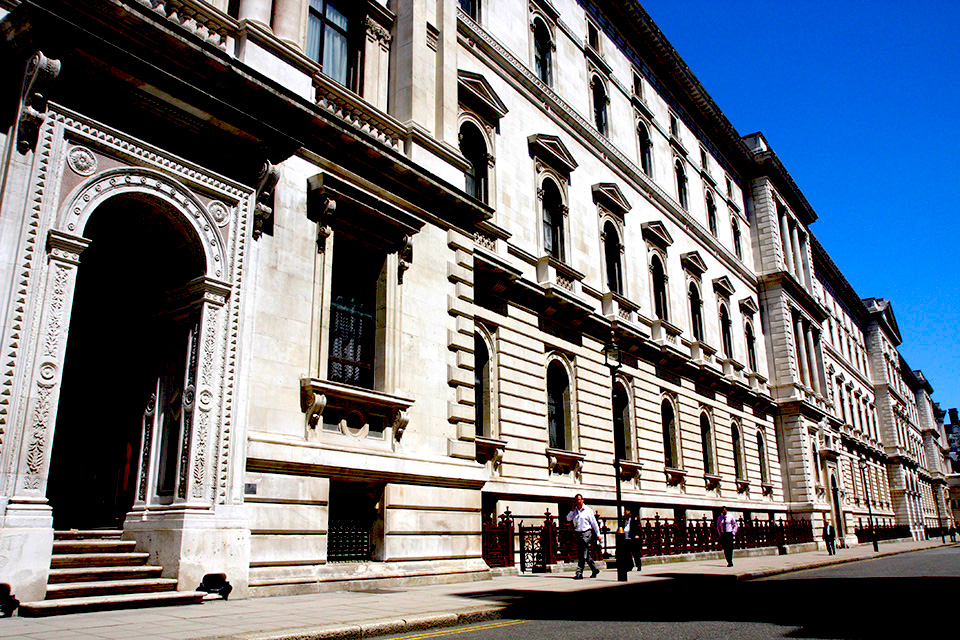
U.K. Foreign Office in London. (Foreign and Commonwealth Office, CC BY 2.0, Wikimedia Commons)
Since January 2021, the Foreign Office has given at least £2.7 million to the Centre for Information Resilience (CIR), which openly acknowledges that it receives funding from the U.K. government on its website.
The CIR has been referenced in The Guardian, Observer, Independent, BBC, Daily Mail, Times, Sunday Times, Financial Times, Sky News, and New Statesman no fewer than 29 times since January 2021 — yet the organisation’s U.K. funding has been mentioned just once, according to Declassified’s research.
The Centre for Information Resilience was founded by two Foreign Office veterans, Ross Burley and Adam Rutland, who are now its directors. It produces a regular stream of information relating to Russian war crimes and information operations, particularly in Ukraine. The organisation says its flagship project is monitoring human rights abuses in Myanmar. This information frequently gets picked up and reported on by the British press.
The Guardian has published seven articles which focus on or mention the Centre for Information Resilience’s research, none of which state the U.K. government funds the CIR, nor that its directors are connected to the Foreign Office.
Instead, the Guardian refers to the Centre for Information Resilience as a “U.K.-based human rights researchorganisation,” a “London-based” or “U.K.-based” organisation, a “London-based human rights organisation” and as a “non-government” organisation. Two other articles contain no explanation of the CIR.
The Guardian’s sister paper, the Observer, has published one article based on CIR research, in which the organisation is referred to as a “non-profit U.K. social enterprise.”
Funding, What Funding?
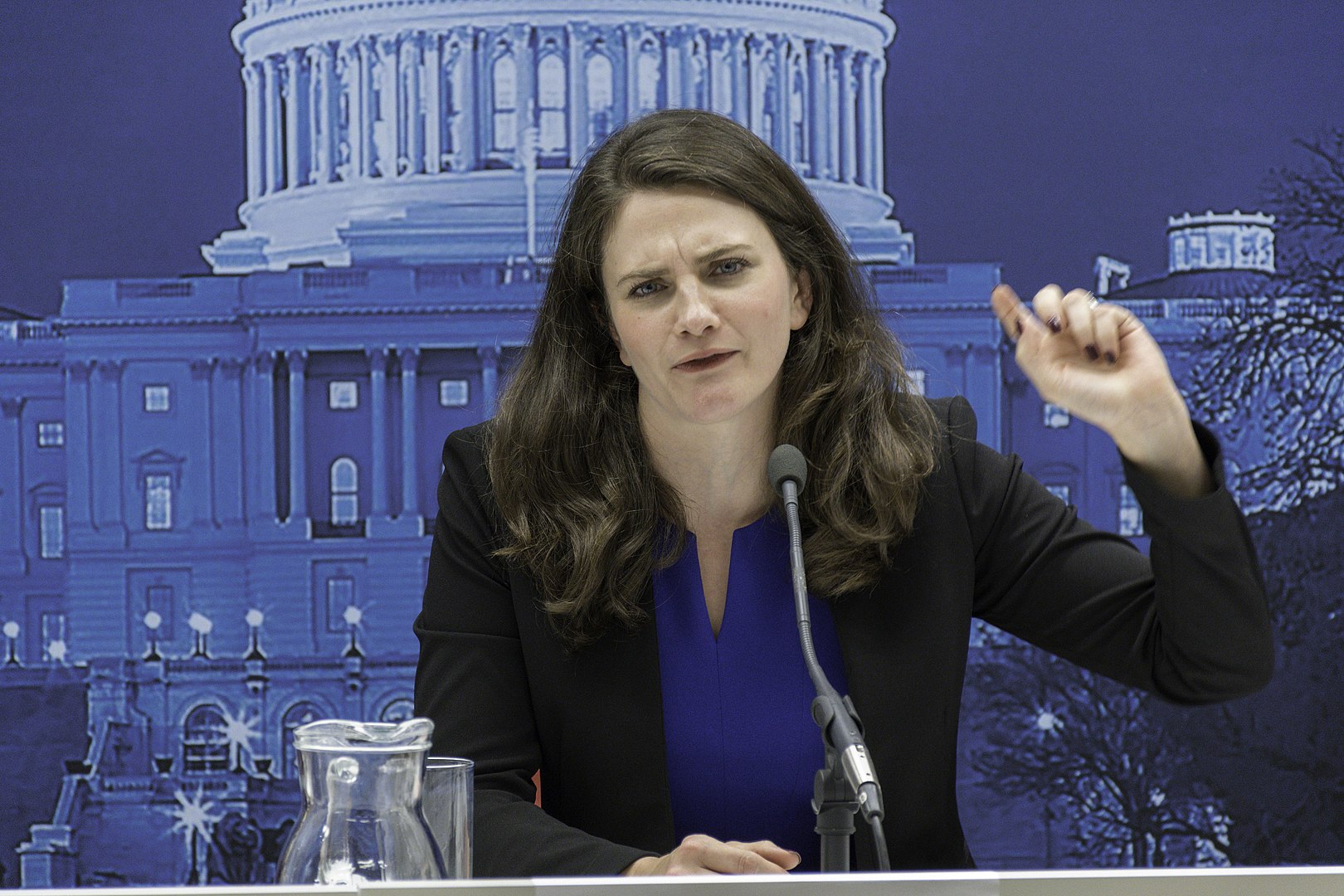
Nina Jankowicz on Cyber Security at the U.S. Embassy Vienna in 2019. (U.S. Embassy, Vienna)
The Independent has published eight articles which reference the CIR, none of which disclose the Centre for Information Resilience’s sources of funding. In one article, by Nina Jankowicz, who works for the CIR, the organisation is described as “an independent U.K. social enterprise that identifies, counters and exposes disinformation.”
The BBC has published three articles which draw on the Centre for Information Resilience’s research, with none of them mentioning that the organisation, like the BBC itself, receives a significant amount of funding from the U.K. government.
The BBC has also interviewed the CIR’s directors without mentioning the organisation’s government ties.
Declassified also found that the Daily Mail cited the Centre for Information Resilience on two occasions but, once again, did not mention its funding.
In the CIR’s round-up for 2022, the organisation boasted that it had partnered with “dozens of media outlets” including the Financial Times, Sky News and the New Statesman. None of these media organisations informed readers of the CIR’s Foreign Office funding.
After conducting a Lexis search for U.K. broadsheets, Declassified UK could find only one article mentioning that the Centre for Information Resilience receives funding from the U.K. Foreign Office. On 29 January, the print edition of the Sunday Times noted that the CIR’s Myanmar Witness project “is part-funded by the British Foreign, Commonwealth, and Development Office.”
Secrecy on Information Operations
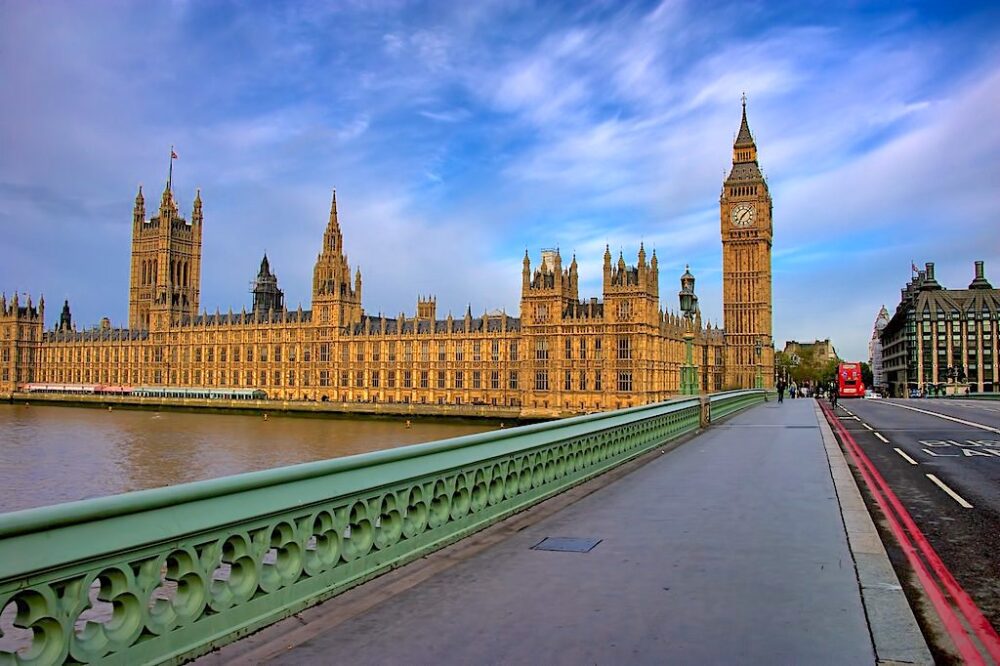
Westminster Palace, home of U.K. Parliament, from Westminster Bridge, London. (Jim Nix, Flickr, CC BY-NC-SA 2.0)
While the British media misinforms its readers about Foreign Office links to the organisations it cites, the U.K. government continues to shroud its own information operations in official secrecy.
In February 2022, Whitehall established the Government Information Cell (GIC) “to support the U.K.’s response to Russian disinformation relating to their invasion of Ukraine.”
The GIC is a cross-government team “of professionals in assessment and analysis, counter-disinformation, and strategic communication” which is funded through the Conflict, Stability and Security Fund (CSSF).
Though the Government Information Cell’s operations will likely impact U.K. citizens, the British public is not allowed to know how much public money is being spent on this project.
As Foreign Office minister Leo Docherty recently told Parliament: “It would not be appropriate to comment on funding levels publicly as to do so would give malign actors insight into our capabilities.”
Similarly, the Foreign Office recently refused to disclose to Parliament exactly which companies, think tanks, NGOs, and other organisations have been given funding to “to help counter disinformation in the last three years.”
Docherty told Parliament that it is impossible to say how much the Foreign Office has spent on countering disinformation in each of the last four years as this information “could only be obtained at disproportionate cost.”
John McEvoy is an independent journalist who has written for International History Review, The Canary, Tribune Magazine, Jacobin and Brasil Wire.
Mark Curtis is the editor of Declassified UK, and the author of five books and many articles on U.K. foreign policy.
This article is from Declassified UK.

Read Consortium News, by John Pilger, September 12, 2022. “The slaughter of the First World War”.
The Final Nail in the Coffin???
Talking of the British Medias “Manufacture of Consent” through the practices of Deception and ‘Disinformation’; this sordid history of ‘conspiring’, is long at home in America!
A highly insight-full, still highly pertinent movie, on the perversion of factual truths, and its effects, in all manner, socioculturally, is the movie, The Insider, 1999, with Al Pacino, Russel Crowe, et. al., based on the largest corporate media fraud in history of the time.
Wikipedia blurb:
[After seeking the expertise of former “Big Tobacco” executive Jeffrey Wigand (Russell Crowe), seasoned TV producer Lowell Bergman (Al Pacino) suspects a story lies behind Wigand’s reluctance to speak. As Bergman persuades Wigand to share his knowledge of industry secrets, the two must contend with the courts and the corporations that stand between them and exposing the truth. All the while, Wigand must struggle to maintain his family life amidst lawsuits and death threats.]
Julian Assange, at the time of these goings-on, was an avid, free and truly independent individual; still practicing as an ardent truth seeking, working Journalist and Publisher.
The British Medias long on-going practices of “Deception and ‘Disinformation’” is now juridically currupted, illegal in its brazen colluding with U.S. media; and above all, with the puppet master, the U.S. government, in the attempt at destruction of freedom of speech, as well as thought itself, the world over.
It has always been so. It is the Sapiens way, no matter where we live.
Please.
Atlantic Council [anything] = US/UK propaganda
IMF = debt trap city
Integrity Initiative = Industrial Grade disinformation organization
Nina Jankowicz – Neocon shill and professional liar
Let’s face it. The entirety of “The West” is lying to their publics and the world. They are building an entire edifice of false narratives.
US/UK = asses of evil. I peruse The Guardian on a daily basis and am always amazed (disappointed) how little – if any, coverage is given to the Russian side. It is no wonder the Yanx and the Brits get along so well…birds of a feather…
The Guardian used to be quite good. I don’t know who got to them, but i only go for recipes and articles about the environment. (And a laugh at the opinion of John Crace on most brit politicians.)
To riff on an old journalism axiom, even when the national news source of record runs a front page story affirming that your own mother loves you, check it out.
These days, and with current conditions, it means getting on the phone immediately to personally cross examine your own father, all of your brothers and sisters, your priest or rabbi, your parent’s next door neighbors, your Mom’s best friends, as well as the family physician, tax accountant, and veterinarian.
Fide Nomini!! Trust no one…without also insisting upon having multiple, and independent sources of credible references. Oh, and welcome to news gathering occurring during the new roaring 20s.
From the article:
“The BBC has published three articles which draw on the Centre for Information Resilience’s research, with none of them mentioning that the organisation, like the BBC itself, receives a significant amount of funding from the U.K. government.
The BBC has also interviewed the CIR’s directors without mentioning the organisation’s government ties.”
That’s why i call them the “british bullshit corporation”. Never bite the hand that feeds you.
“The U.K. government has poured over £25 million into private “counter-disinformation” organisations since January 2018…” = outsourcing government propaganda. Perhaps not a new fad but an escalating one which is being led by the worlds leading “democracies” including the EU. This, of course, is instead of informing and working for the public who in a democracy are sovereign. And yet, these are the countries that are courageously leading the “fight for democracy against autocracy.” A bit hard to swallow. Perhaps they should try strengthening democracy at home.
Transparency in governance, as opposed to opaqueness and propaganda, is the basic requisite for a functioning democracy. And yet, this obvious, bedrock principle is, in practice, anathema in countries like the US and UK. Why is that we wonder..?
It’s a safe assumption, IMO, that all of the MSM is corrupt and owned by Governments/Security Agencies. When ‘they’ say disinformation you need to think truth.
I have a lot more confidence in news stories provided by RT and Globaltimes than the Western MSM sources and obviously CN, MoonofAlabama and DeclassifiedUK are important goto sites for intelligent analysis.
Unfortunately though, it’s the masses that are susceptible to the MSM brainwashing.
Sometimes I am surprised, pleasantly so, by people who I wouldn’t expect to see through the MSM lies and distortions.
Even if they don’t understand or know much about the topic, they often instinctively react against it. It fails the smell test, it doesn’t sound right to them.
This give me hope that the masses aren’t quite as susceptible to brainwashing as governments and media think. They are less and less convinced, and therefore less trusting. Trust, once lost, is extremely hard to recover.
Negotiations between the EU and victor Yanukovich continued well on into 2013. Yanukovich was invited to sign the Association Agreement, but there were a number of conditions. The most significant of these were those concerning an IMF loan.
But anything involving the IMF should have set the alarm bells ringing regarding the intentions of western institutions vis-à-vis the future of the Ukraine. The conditionality clauses were very much in the tradition of the IMF. Their ‘Structural Adjustment Programmes’ had always been the scourge of the developing world and this offer pact was enough to scupper the EU deal. Prime Minister Azarov at the time stating that ‘’the issue which blocked the signature of the EU deal were the conditions proposed by the IMF loan being negotiated at the same time as the budget cuts and 40% increase in gas prices’’. This for a country already verging on bankruptcy. In store for the Ukraine was the usual neoliberal austerity package. Compliments of the IMF’s Structural Adjustment Policies (SAPs) this would involve the following set of prescriptions:
1. Balance of payments deficit reductions through currency devaluation = SAP
2. Budget deficit reduction through higher taxes and lower government spending, aka austerity = SAP
3. Restructuring foreign debts
4. Monetary policy to finance government deficits (loans from central bank – with strings) = SAP
5. Raising food prices to cut the burden of subsidies = SAP
6. Raising the price of public services = SAP
7. Cutting wages = SAP
8. Reducing domestic credit = SAP
9. ‘Reforming’ pensions = SAP. Marvelous word ‘Reforming’
10. Deregulation of labour market. = SAP aka smashing labour unions
Longer-term ‘structural adjustment’ policies usually include:
1. Liberalization of markets to guarantee a price mechanism = SAP
2. Privatization, or divestiture, of all or part of state-owned enterprises = SAP
3. Creating new financial institutions. Hedge Funds, Shadow Banks, Private Equity = SAP
4. Improving governance and fighting corruption – ?
5. Enhancing the rights of foreign investors vis-à-vis national laws = SAP
6. Focusing economic output on direct export and resource extraction = SAP. That is to say, the creation of a peripheral economy a raw material exporter.
7. Increasing the stability of investment (by supplementing foreign direct investment with the opening of domestic stock markets). Financialization of the host economy = SAP
Just what the doctor ordered, no! These policies have been tried everywhere and have failed abysmally. Little wonder Yanukovich took the Russian offer instead.